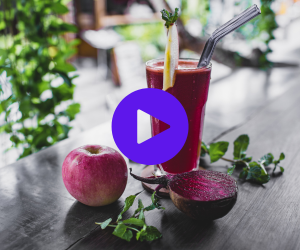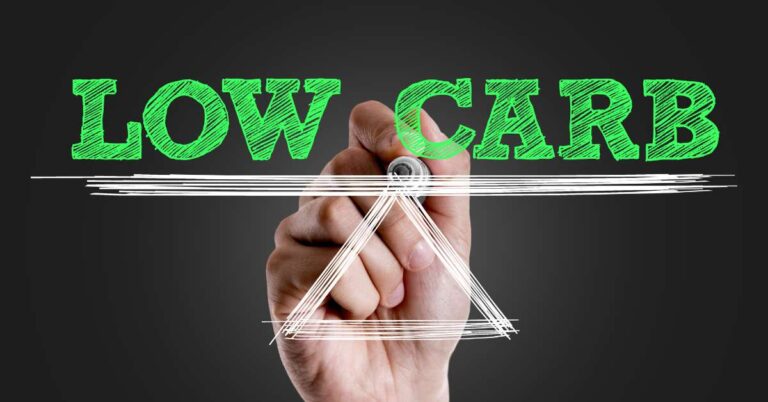How to Do a Fruit Diet for Weight Loss?

Do you want to lose excess weight and reach your goals? A fruit diet can be an excellent way to kick-start your journey towards a healthier you. In this article, we’ll guide you through how to do a fruit diet for weight loss effectively. From understanding the benefits of a fruit diet to meal planning, exercise, and success stories, we’ve got you covered. So, let’s dive in and discover how incorporating fruits into your diet can help you achieve your weight loss objectives.
Introduction
In our fast-paced world, it’s easy to fall into unhealthy eating habits and gain unwanted weight. However, you can make positive changes and transform your body with the right approach. A fruit diet focuses on consuming various fruits while eliminating or reducing other food groups. It offers numerous benefits beyond weight loss, such as improved digestion, increased energy levels, and glowing skin.
Benefits of a Fruit Diet for Weight Loss
The fruit diet has gained popularity for its effectiveness in weight loss journeys. It offers several advantages that contribute to shedding those extra pounds. Firstly, fruits are low in calories and fiber, which helps you feel full for longer, reducing the temptation to snack on unhealthy foods. Additionally, fruits are rich in essential vitamins, minerals, and antioxidants, providing your body with the nutrients it needs while promoting overall health.
Related Post: Fruits For Weight Loss: 9 Best Fruits Loss naturally
Types of Fruits to Include in Your Diet
When embarking on a fruit diet, it’s essential to include a variety of fruits to ensure a well-balanced nutrient intake. The best weight-loss fruits include berries, apples, grapefruits, oranges, and pears. These delicious fruits offer different vitamins and antioxidants supporting weight loss and well-being. Experiment with other fruits to find the ones you enjoy the most and create a diverse and exciting meal plan.
Meal Planning for a Fruit Diet
Creating a meal plan is crucial for a successful fruit diet. Start by incorporating fruits into your breakfast, such as a refreshing fruit smoothie or a bowl of mixed berries. For lunch and dinner, combine fruits with leafy greens, lean proteins, and whole grains for a well-rounded meal. Snacks include sliced fruits, fruit salads, or homemade fruit popsicles. Remember to stay hydrated by drinking plenty of water throughout the day.
Combining a Fruit Diet with Exercise
While a fruit diet can contribute to weight loss, combining it with regular exercise can amplify the results. Physical activity helps burn calories, builds muscle, and increases metabolism. Aim for cardiovascular exercises, strength training, and flexibility exercises. Find activities you enjoy, such as jogging, swimming, cycling, or yoga, and make them a part of your routine.
Fruit Diet And Weight Loss
The fruit diet can contribute to weight loss through various mechanisms:
Calorie Reduction
Fruits generally have fewer calories compared to other foods. Adding fruits to your diet can satisfy your hunger while consuming fewer calories. This is crucial for weight loss. Fruits are often lower in energy density than processed and high-calorie foods, enabling you to create a calorie deficit.
High Fiber Content
Fruits are abundant in dietary fiber, offering numerous weight loss benefits. Studies have shown that fiber adds volume to your meals, keeping you feeling full for more extended periods and reducing your calorie intake. Additionally, research suggests fiber helps digestion and promotes healthy gut bacteria, supporting optimal digestion and metabolism.
Nutrient-Rich
Fruits are packed with essential vitamins, minerals, and antioxidants, providing a wide range of nutrients for overall health and well-being. When you follow a fruit diet, you ensure that you obtain vital micro and macronutrients while managing your calorie intake. This nutrient density supports weight loss by nourishing the body and promoting optimal bodily functions.
Hydration
Many fruits have a high water content, which helps in hydration. Studies have shown that watermelon, muskmelon, strawberry, and grapefruit are more than 90 percent water. Staying hydrated is crucial for weight loss as it helps maintain proper bodily functions, supports metabolism, and can help control appetite. You can keep overall hydration levels by incorporating hydrating fruits into your diet.
Natural Sugars and Satiety
Although fruits contain natural sugars, they also contain fiber and water, which slow down the absorption of sugars into the bloodstream. This helps prevent spikes in blood sugar levels and can benefit weight management. Additionally, as indicated in this research, fruits’ fiber and water content contribute to feelings of satiety, helping to reduce cravings and prevent overeating.
It’s crucial to remember that although a fruit diet might help you lose weight, it should be a small component of a larger, well-balanced eating plan. To ensure you get enough of each food type to satisfy your nutritional requirements, include veggies, whole grains, lean meats, and healthy fats. Furthermore, portion control, moderation, and regular physical activity are essential to weight loss. It is recommended to consult with a healthcare professional or registered dietitian to ensure that a fruit diet aligns with your specific nutritional requirements and goals.
Fruit Diet Tips for Success
To make the most out of your fruit diet journey, consider these helpful tips:
- Gradually transition into a fruit diet to allow your body to adjust.
- Listen to your body’s hunger and fullness cues.
- Experiment with different fruits and recipes to keep your meals exciting.
- Stay consistent and avoid unhealthy temptations.
- To keep motivated, seek help from friends, family, or online networks.
Potential Risks and Precautions
While a fruit diet can be beneficial, it’s essential to be aware of potential risks and take necessary precautions. Some individuals may experience digestive issues due to the high fiber content in fruits. It’s crucial to introduce fruits gradually and monitor how your body responds. Additionally, if you have any underlying health conditions or are taking medications, consult a healthcare professional before making significant dietary changes.
Fruit Diet Success Stories
Hearing success stories can provide inspiration and motivation on your fruit diet journey. Many individuals have achieved remarkable weight loss results by adopting a fruit diet and making positive lifestyle changes. These success stories highlight the effectiveness of the fruit diet and the transformative impact it can have on one’s life. Seek out these stories online or connect with individuals who have experienced success to gain insight and encouragement.
Choosing the Right Fruits for Weight Loss
Not all fruits are created equal when it comes to weight loss. Some fruits are more beneficial due to their high fiber content, low-calorie count, or fat-burning properties. Here are some categories of fruits that you should consider incorporating into your fruit diet:
High-Fiber Fruits
Fiber is known for its ability to promote satiety and regulate digestion. Opt for fruits like apples, pears, raspberries, and blackberries, which are excellent sources of fiber. These fruits will help you feel fuller for more extended periods and keep your digestive system functioning optimally.
Low-Calorie Fruits
Choose fruits low in calories but still packed with nutrients to maximize weight loss. Examples of such fruits include strawberries, watermelon, cantaloupe, and grapefruit. These hydrating fruits help you maintain a calorie deficit for effective weight loss.
Fruits with Fat-Burning Properties
Certain fruits have natural compounds that can help in burning fat. Add fruits like lemon, lime, grapefruit, and berries to your diet. These fruits are delicious and can boost your metabolism, helping you burn calories more efficiently.
Conclusion
In conclusion, a fruit diet can be a fantastic tool to help your weight loss journey. By incorporating a variety of fruits into your meals, you can enjoy their numerous health benefits while shedding those unwanted pounds. Remember to create a well-rounded meal plan, combine your fruit diet with regular exercise, and stay consistent to achieve the best results. Additionally, before making any significant dietary changes, always get medical advice. So, start today, embrace the power of fruits, and move closer to a healthier and happier you.
Frequently Asked Questions
Can I eat only fruits and nothing else on a fruit diet?
A: While a fruit diet primarily focuses on consuming fruits, ensuring a well-balanced nutrient intake is important. Incorporating other food groups like vegetables, lean proteins, and whole grains can provide additional essential nutrients.
How long should I follow a fruit diet to see weight loss results?
A: The duration of a fruit diet varies depending on individual goals. Some individuals follow a fruit diet for a short period as a detox or jumpstart, while others adopt it as a long-term lifestyle change. To choose the best strategy to meet your requirements, speak with a medical professional.
Can I consume dried fruits instead of fresh ones on a fruit diet?
A: While dried fruits can be a convenient option, they are higher in calories and sugar concentration than fresh fruits. It’s recommended to consume fresh fruits whenever possible for optimal results.
Are there any fruits to avoid on a fruit diet?
A: Generally, all fruits are beneficial for your health. However, if you have specific dietary restrictions or allergies, you should avoid fruits that trigger adverse reactions. For personalized advice, speak with a nutritionist or medical professional.
Can I have cheat days on a fruit diet?
A: It’s essential to strike a balance between discipline and flexibility. Occasional indulgences or cheat days can help you stay motivated and prevent feelings of deprivation. However, moderation is key to ensure your overall diet remains healthy and focused on weight loss goals.













